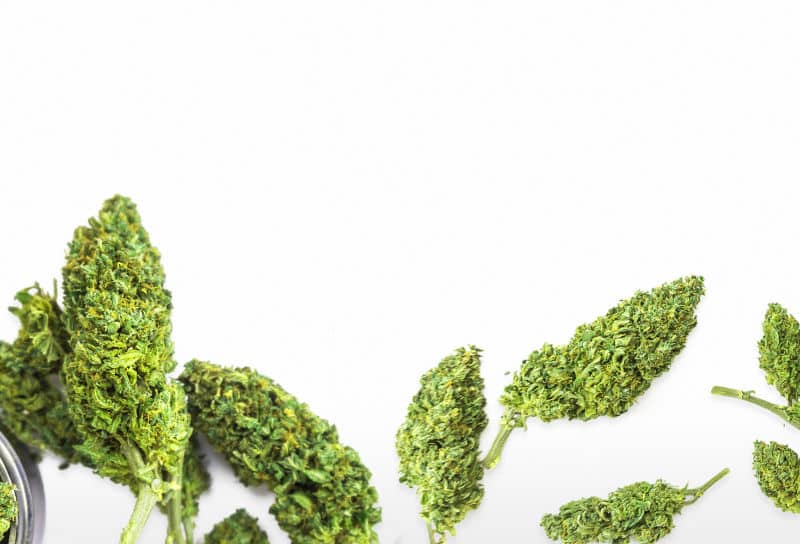THC-A: The Precursor to THC and Its Potential Benefits
In the world of cannabis, THC (tetrahydrocannabinol) is a well-known compound responsible for the plant’s psychoactive effects. However, few are aware of its precursor, THC-A (tetrahydrocannabinolic acid), which holds significant promise as a therapeutic cannabinoid. This article will delve into the characteristics, benefits, and potential uses of THC-A, shedding light on this lesser-known cannabis compound.
What is THC-A?
This is a non-intoxicating cannabinoid found in raw, unheated cannabis plants. Unlike THC, it lacks psychoactive properties, meaning it does not produce the “high” typically associated with cannabis use. Instead, it is considered the acidic form of THC and is converted to THC through a process called decarboxylation, which involves heating the raw plant material.
The Science of THC-A
This is synthesized in cannabis plants through biosynthetic pathways. It primarily exists as THC-A synthase, an enzyme that catalyzes its production. Interestingly, It does not bind well with the endocannabinoid receptors in the human body, which is why it lacks intoxicating effects. Instead, it interacts with other receptors, potentially contributing to its therapeutic effects.
The Benefits of THC-A
Research on it is still in its early stages, but preliminary studies suggest a range of potential therapeutic benefits. Some of the key areas where it shows promise include:
– Anti-inflammatory properties: This form of THC may help reduce inflammation, offering relief to individuals with inflammatory conditions like arthritis and multiple sclerosis.
– Neuroprotective effects: Early studies indicate that it may protect nerve cells from damage, potentially benefiting patients with neurodegenerative diseases like Alzheimer’s and Parkinson’s.
– Anti-nausea and anti-emetic properties: THC-A could be valuable in managing nausea and vomiting associated with chemotherapy and other medical treatments.
– Antispasmodic effects: There is evidence suggesting that it may help alleviate muscle spasms and convulsions in conditions such as epilepsy.
– Appetite stimulation: Similar to THC, THC-A might stimulate appetite, potentially assisting patients with eating disorders or undergoing medical treatments that cause appetite loss.
Methods of Consumption
As THC-A is non-psychoactive in its raw form, it can be consumed without inducing a high. Common methods of consuming THC-A include juicing raw cannabis leaves, adding them to smoothies or salads, or using raw cannabis extracts. The raw form is often preferred by those seeking the medicinal benefits of cannabis without experiencing its psychoactive effects.
Decarboxylation: The Conversion to THC
To access the psychoactive effects of THC, THC-A must undergo decarboxylation, a process achieved through heat. When cannabis is heated, such as through smoking, vaping, or cooking, the carboxylic acid group in it is removed, converting it into THC. Decarboxylation is a crucial step for individuals looking to experience the full range of THC’s effects.
Legal and Regulatory Considerations
The legality of THC-A varies depending on regional cannabis laws. In some jurisdictions, THC-A may be legal to possess and use, while in others, it might be subject to the same restrictions as THC. Understanding local regulations is essential for those interested in exploring the potential benefits of THC-A.
Current Research and Future Potential
While early research on THC-A is promising, more comprehensive studies are needed to fully understand its potential benefits and applications. As cannabis research continues to expand, scientists and medical professionals may uncover additional therapeutic properties of THC-A, leading to new treatments for various health conditions.
THC-A, the precursor to THC, offers a wealth of potential benefits without inducing the psychoactive effects commonly associated with cannabis use. As research into cannabinoids progresses, understanding the properties and potential applications of THC-A becomes increasingly important for individuals seeking natural and alternative remedies for various health conditions. As with any cannabis-derived compound, consulting with a healthcare professional is recommended before incorporating THC-A into one’s wellness regimen.
Please always follow all Oklahoma Laws when obtaining any cannabis products, and always buy from a licensed OMMA dispensary. If you have any questions you can come into any Fire Leaf Dispensary in the Oklahoma City Metro Area.
Always follow all Oklahoma Laws when purchasing cannabis, and always buy from a licensed OMMA dispensary. IF you have any questions you can always come into any Fire Leaf Dispensary in the Oklahoma City Metro Area, including Guthrie and Norman.





